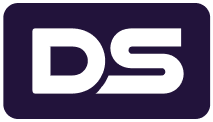Definition
A cryptocurrency wallet is a tool that lets you interact with Blockchain networks and send, receive & store crypto. It contains a public & private key (the codes that give you ownership & access to your crypto).
Understanding Cryptocurrency Wallets
Cryptocurrency wallets don’t store your money in the way a regular wallet or online bank account does. Instead, wallets store codes called ‘public’ and ‘private keys’, the combination of which gives you ownership & access to your crypto assets.
Public and private keys
Your public key is your wallet’s address where you can receive cryptocurrency (kind of like your bank account number). It is public and can be shared with anyone.
Your private key when combined with your public key allows you to make transactions and is your proof of ownership of your wallet and the crypto in it. Thus, it should be kept with immense care & privacy.
Wallets & Blockchain
Cryptocurrencies exist entirely online (on a Blockchain network), which is essentially a giant spreadsheet of transactions that shows who owns what. It is this record of transactions & balances that underlies a person’s ownership of their cryptocurrency.
Different types of wallets
Cryptocurrency wallets come in many shapes and sizes depending on the needs of the user. However, whether it’s a hardware, software, mobile, paper or desktop wallet, the main difference is whether the wallet uses ‘cold’ or ‘hot’ storage.
- Cold storage wallets (e.g. hardware & paper wallets) store your crypto offline and are not connected to the internet, reducing the risk of theft or hacking.
- Hot storage wallets (e.g. software, online, desktop & mobile wallets) offer convenience in storing and making transactions but are more susceptible to theft & security breaches as they are connected to the internet.
A little confused? Don’t worry. If you’re a casual trader, being an expert on the technical aspects of crypto wallets is not essential. When it comes to actually using a crypto wallet, you’ll find the software takes care of pretty much everything for you.
At Digital Surge we give all our users a free, personal wallet on sign up. Our wallets use an optimised blend of hot & cold storage (giving you a balance of security & convenience). However, if you are dealing with a sizeable amount of crypto and want the best security possible, we recommend using a cold storage hardware wallet like a Nano Ledger or Trezor.
Key Takeaways
- Cryptocurrency does not exist in physical form. What exists are unalterable records of transactions stored on the Blockchain, showing who owns what.
- Crypto wallets don’t actually store currency but rather act as a tool of interaction with the Blockchain (generating your public & private keys so you can send & receive money on the Blockchain.
- It is the combination of your public and private keys that give you ownership of your cryptocurrency.
- Wallets can be cold or hot depending on whether they are connected to the internet.
- Hardware wallets are the safest way to store cryptocurrency investments as they utilise cold, offline storage.
- Software/web/online/mobile/desktop wallets are hot wallets that are connected to the internet. They offer convenience but a potentially less secure place to store your assets.
- Crypto wallets can store multiple coins at once, however, most wallets support a limited number of cryptocurrencies.
- If you are a casual trader, using the web/online wallet from the exchange you trade on can offer a good mix of convenience & security.
Where is cryptocurrency actually stored?
Cryptocurrency does not exist anywhere in a physical form. All that exists are unalterable records of transactions stored on the Blockchain which show who owns what.
With both a private and public key (which your wallet will contain) you can interact with the Blockchain and access, send, receive and store your crypto with ease.
Unlike traditional ‘pocket’ wallets, crypto wallets don’t store currency, which is part of the reason they are able to offer so many advantages over traditional money.
What are the different types of cryptocurrency wallets?
Online/web wallet
An online or web wallet runs on the cloud and is accessible from any computing device in any location. This is what most exchanges give you when you sign up with them. While they remove the burden of storing your keys yourself, and are highly convenient to access, online wallets rely on a third party, storing your private keys online where they are more vulnerable to attack than a hardware wallet.
Hardware wallets
Hardware wallets differ from software wallets in that they store a user’s private keys in cold, offline storage on a physical device. Although hardware wallets can be connected to the internet to make transactions, they are stored offline and have built-in security, making them one of the safest options for storing your crypto.
Desktop wallet
A desktop wallet is downloaded and installed on a PC or laptop and is only accessible from the single computer in which they are downloaded. While they offer a high level of security, if your computer is hacked, destroyed or gets a virus there is the possibility that you may lose your funds.
Mobile wallets
Mobile wallets run on an app on your phone. While they are not the best option for security, they provide convenient access to your crypto.
Paper wallet
Paper wallets are becoming less common, but they still provide a secure and relatively simple way store your assets offline in cold storage. While the term paper wallet can simply refer to a physical copy or printout of your public and private keys (often in the form of a QR code), it can also refer to a piece of software that is used to securely generate a pair of keys which are then printed. Not as safe as a hardware wallet but still formidable if you are diligent about protecting that piece of paper! Solid choice for long-term investors but not ideal if you’re making frequent transactions.
Why do cryptocurrencies such as Bitcoin use a two-key system?
For security reasons. The basic concept behind the two-key system is as follows: the public key allows you to receive transactions, while the private key is necessary to send transactions.
How does public/private key encryption work?
Joe wants to send Amy some cryptocurrency. To do this, Joe takes Amy’s public key and encrypts the cryptocurrency, signing it with his private key (ensuring the authenticity of the transaction).
Then, when Amy receives the transaction, she takes her private key (that is known only to her) in order to decrypt and receive the cryptocurrency from Joe.
- Confidentiality – The assets sent to the public key can only be decrypted with the private key, ensuring that only the intended recipient can ever gain access.
- Integrity – Part of the decryption process requires checking that the received transaction matches the sent transaction. This ensures that the transaction has not been tampered with in between.
- Authenticity – Each transaction is signed using the sender’s private key. The only way to decrypt the sender’s private key is with their public key, which the recipient can access. The sender signs the transaction using their private key, ensuring the authenticity of the message and that it really came from them.
What is a wallet address?
A wallet address is like a bank account number. You can give it to others so they can transfer you money, but they won’t actually have access to the funds in the account.
No two wallet addresses are ever the same, which means that there is no chance that somebody else would get your funds (unless you send it to the wrong address!).
Also, there is no limit to the number of wallet addresses you can create (but keep in mind your wallet does not exist until there is some crypto inside).
Here’s an example of what a Bitcoin address looks like:
1A1zP1eP5QGefi2DMPTfTL5SLmv7DivfNa
While most Blockchains are transparent, revealing how much money a person has and the transactions they’ve made, a crypto wallet does not reveal the real-world identity of its owner, giving anonymity and privacy to its users.
How Do Private and Public Keys Relate to a Wallet Address?
Every cryptocurrency wallet will have its own unique private and public key. The private key allows you to access the funds that are related to the crypto wallet address. However, a common misconception is that a public key is the same as a public wallet address. This is not the case.
An address is the hash of the public key. Using a hashed version of your public key adds an extra layer of security. When you have a private key, you can use that to derive the public key, which you can then use to derive the address/hash. That’s why you only need the private key backed up, because everything else can be derived from that.
While this is all quite technical, remember that even though it is important to understand the basics of cryptocurrency wallets, the software does everything for you. You don’t actually need to understand the technology that runs in the background (like how Gmail helps you send emails, a crypto wallet helps you make transactions).
What is a seed phrase?
A seed phrase, seed recovery phrase or backup seed phrase is a randomly generated list of 12-24 words which store all the information needed to recover your cryptocurrency.
Seed phrases are used to recover your funds in case you lose your wallet’s password or the device where your wallet is installed. It is also useful if your wallet doesn’t seem to be functioning properly.
Many wallets will typically generate a seed phrase and instruct the user to write it down on paper or keep it somewhere secure.
What are some of the best cryptocurrency wallets out there?
While we recommend doing your own research, here are a few picks of some of the best wallets out there (if you decide you want to keep your coins off the exchange you trade on).
Trezor and Ledger Nano are two of the most popular secure hardware wallets on the market. These two brands have a variety of models and have set the benchmark for crypto hardware wallet security and convenience.
If you’re looking for a mobile wallet then Mycelium is a popular choice for Android and iOS devices, though it can be a little confusing to use for beginners.
Alternatively, Exodus is a popular software wallet that lives on your laptop or desktop computer.





